IPS have contributed to various publications, ranging from peer reviewed academic papers, academic book chapters, professional guidelines, organisational handbooks and policy briefs.
Most of the following publications can be accessed at ResearchGate: https://www.researchgate.net/profile/Christopher-Dean-7
Dean, C., & Lloyd, M. (2026). Building professional relationships with individuals involved in terrorism. In J. Shingler, N. Bowes & T. Ghilani (eds.) Transforming Relationships in Forensic Psychological Practice. Routledge.
Dean, C. (2024). The Power Threat Meaning Framework: Implications for Practice in Preventing Violent Extremist Violence. Journal for Deradicalization, 40, 1-38.
Dean, C. (2023). Accurate Risk & Need Assessment of Ideologically Justified Violence: A Necessary Step for Effective Risk Management. Les Cahiers de la Sécurité et de la Justice, 58, 91-101.
Dean, C. (2023). Understanding and Preventing Ideologically Justified Violence in Custodial Settings: The MICO Paradigm. The Prison Journal.
https://journals.sagepub.com/doi/abs/10.1177/00328855231154598
Dean, C., & Lloyd. M. (2022). Challenging Bias in the Assessment of Extremist Offending. In Leill, G.C., Fisher, M., & L. Jones (Eds.), Challenging Bias in Psychological Assessment and Testing: Theoretical and Practical Approaches to Working with Diverse Populations. Abingdon: Routledge.
C.Dean (2022). Detecting terrorism risk behaviours in prison: A thematic analysis. Behavioral Sciences of Terrorism and Political Aggression.
Christopher Dean, Monica Lloyd and Sebastien Feve “Guidance on Establishing Frameworks to Assess Violent Extremism in Prisons” Policy Brief, Global Center on Cooperative Security, June 2021
Sebastien Feve and Christopher Dean "Cooperating with Civil Society to Rehabilitate and Reintegrate Violent Extremist Prisoners" Policy Brief, Global Center on Cooperative Security, August 2020
https://www.globalcenter.org/wp-content/uploads/2020/08/Global_Center_Cooperating_CSO_RR.pdf
Herzog-Evans, M., Benbourche, M., Berjot, S., Keulen De Vos, M., Vanderstukken, O., Dean, C., Duarte, S., & Guay, J-P. (2019). Treatment of perpetrators of terrorism related offences: a program based on scientific data. Les Cahiers de la Sécurité et de la Justice, 46, 72-82.
Dean, C. (2019). When nothing else matters: A study of the link between over-identification and violent extremism, Cahiers de la Sécurité et de la Justice, 46, pp.30-41.
Dean, C. (2019). Good Practices: United Kingdom: Translating Identity Theory into Identity Informed Intervention. In M. Herzog-Evans and M.Benbouriche (eds.), Evidence-Based Work with Violent Extremists: International Implications of French Terrorist Attacks and Responses. Lanham, MD: Lexington Books.
Christopher Dean and Eelco Kessels, “Compendium of Good Practices in the Rehabilitation and Reintegration of Violent Extremist Offenders,” Global Center on Cooperative Security, August 2018.
Christopher Dean, Sebastien Feve, and Eelco Kessels, “Countering Violent Extremism in Prisons Good Practices Guide,” Global Center on Cooperative Security, August 2018.
Dean, C., Lloyd, M., Keane, C., Powis, B., Randhawa, K. (2018). Intervening with Extremist Offenders – A Pilot Study. Analytical Summary. Her Majesty’s Prison and Probation Service. UK Ministry of Justice.
https://www.gov.uk/government/publications/intervening-with-extremist-offenders-a-pilot-study
Al-Attar, Z., Bates-Gaston, J., Dean, C., Lloyd, M. (2018). Ethical Guidelines for Applied Psychological Practice in the Field of Extremism, Violent Extremism and Terrorism. Leicester: British Psychological Society.
Dean, C. (2017). The role of identity in committing acts of violent extremism – and in desisting from them, Criminal Behaviour and Mental Health, 27, pp. 281-285.
Christopher Dean (2017). Tipping point: Rejecting or embracing violence. Linking Security of Women and States. Policymaker Blueprint. Futures Without Violence and Open Square. Washington DC.
https://www.futureswithoutviolence.org/securityofwomenandstates/
Christopher Dean, Countering violent extremism in prisons: Principles for effective interventions and programmes. Interventionen: Zeitschrift für Verantwortungspädagogik. Violence Prevention Network. December 2016. pp. 18-27.
Dean, C., Molenkamp, M., & Pressman, E.D. (2016). Council of Europe handbook for prison and probation services regarding radicalisation and violent extremism. Council for Penological Cooperation, European Committee on Crime Problems, Directorate General - Human Rights and Rule of Law, Council of Europe, Strasbourg.
https://rm.coe.int/CoERMPublicCommonSearchServices/DisplayDCTMContent?documentId=09000016806fa02e
Christopher Dean "Addressing violent extremism in prisons and probation: Principles for effective programs and interventions" Policy Brief, Global Center on Cooperative Security, September 2016.
Lloyd, M. & Dean, C (2016). The development of structured guidelines for assessing risk in extremist offenders. Journal of Threat Assessment & Management, 2 (1), 40-52. http://psycnet.apa.org./journals/tam/2/1/40/
Horan, R., Dean,C. & Sutcliffe, P. (2015). Reducing gang related prison violence. Prison Service Journal, 221, 42-46. http://www.crimeandjustice.org.uk/publications/psj/prison-service-journal-221
Dean, C. (2014). The healthy identity intervention: the UK’s development of a psychologically informed intervention to address extremist offending. In A.Silke (Ed.), Prisons, Terrorism & Extremism, Critical Issues in Management, Radicalisation and Reform. Oxon, U.K: Routledge. http://www.radicalisationresearch.org/research/prisons-terrorism-and-extremism-critical-issues-in-management-radicalisation-and-reform/
Building on the Global Counter-Terrorism Forums Rome Memorandum - Additional guidance on the role of psychologists and psychology in rehabilitation and reintegration programmes. Hedayah and the International Centre for Counter-Terrorism the Hague (2013).
http://www.icct.nl/download/file/Hedayah-ICCT%20Psychology%20Good%20Practices.pdf
Dean, C. (2012). Intervening effectively with terrorist offenders. Prison Service Journal, 203, 31-36. http://www.crimeandjustice.org.uk/publications/psj/prison-service-journal-203


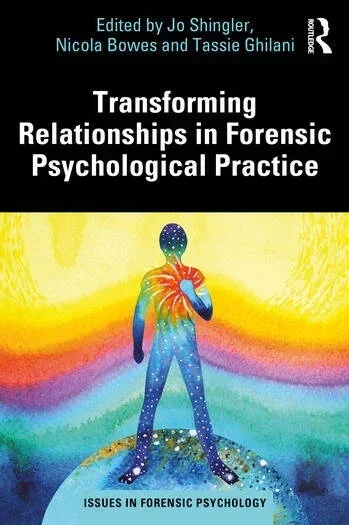
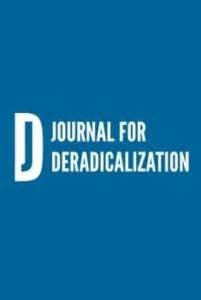



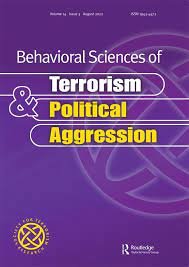



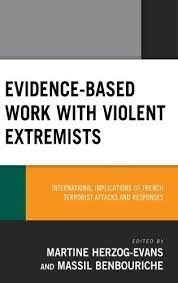
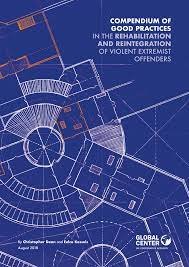








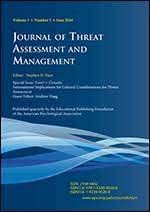

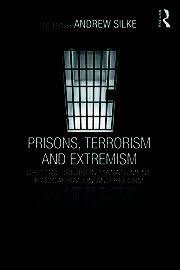


 https://orcid.org/0000-0001-6846-2621
https://orcid.org/0000-0001-6846-2621